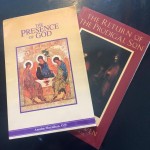Last week, I was a guest on In The Arena to talk about the aftermath of Super Tuesday and to look ahead to Second Super Tuesday. (Is that what we’ve agreed to call it? Has anyone reached out to Merry and Pippin for comment?). You can check out my segment (and my stats) below.
And although I can’t fault you for being a little tired of takes on the election (and the electorate) I want to strongly recommend Ivan Plis’s examination of evangelical support for Trump for National Interest.
By contrast, a study that set out to find self-described evangelicals concludedthat the likeliest Trump supporters are also the least likely to attend regular religious services. (While 88 percent of American evangelicals are “absolutely certain” they believe in God, only 58 percent say they attend weekly services.) At the same time, self-described evangelicals have been key to Trump’s success—at the expense of other candidates, most notably Ted Cruz.
There’s the creeping crack-up of working-class institutions again. As Charles Murray has written, the subset of self-professed “religious” U.S. whites that is least affected by declining church attendance trends is educated and wealthy, seemingly in contradiction of every stereotype about class and religion. The loss of social capital that accompanies detachment from a cohesive church community has very real material costs, and lower-class white communities are far less equipped to withstand it than those who are rich and unchurched.















